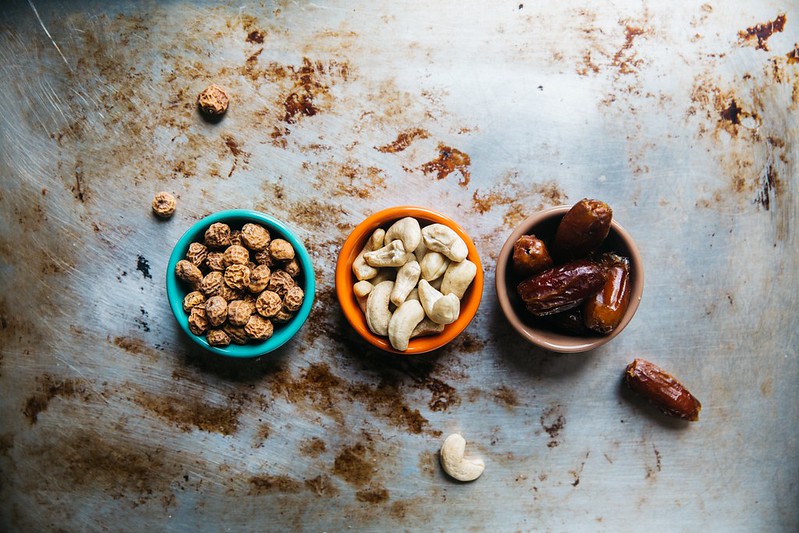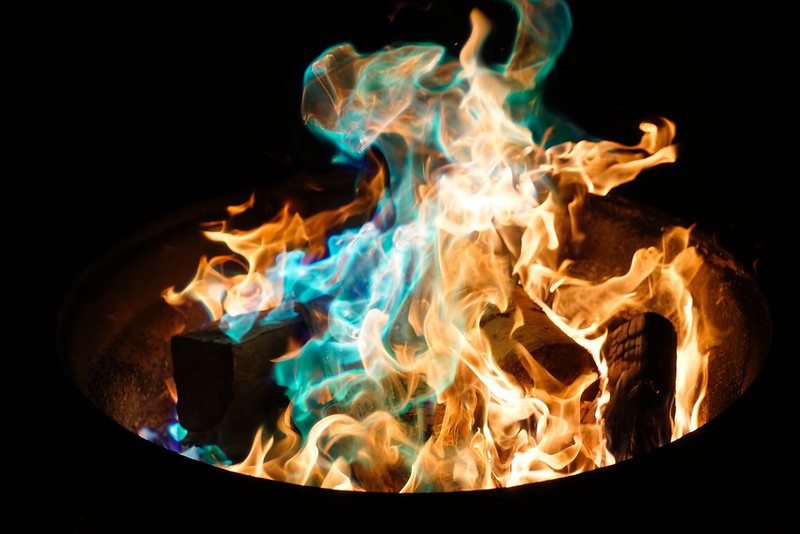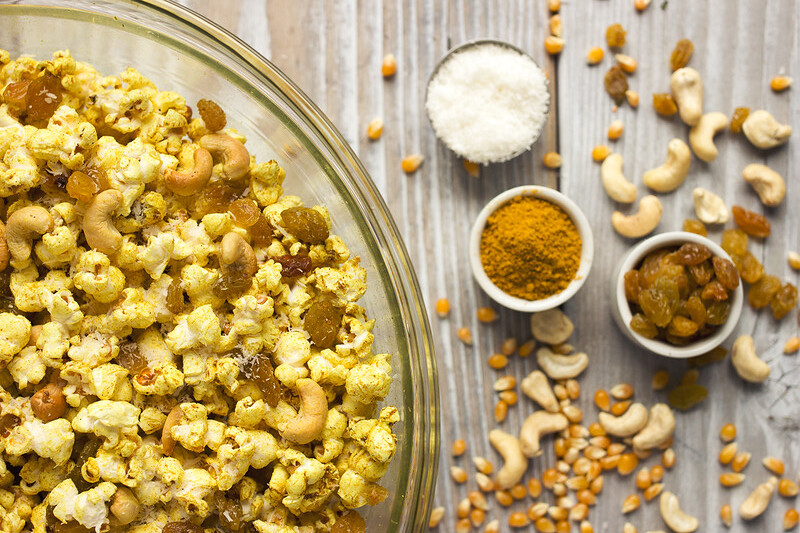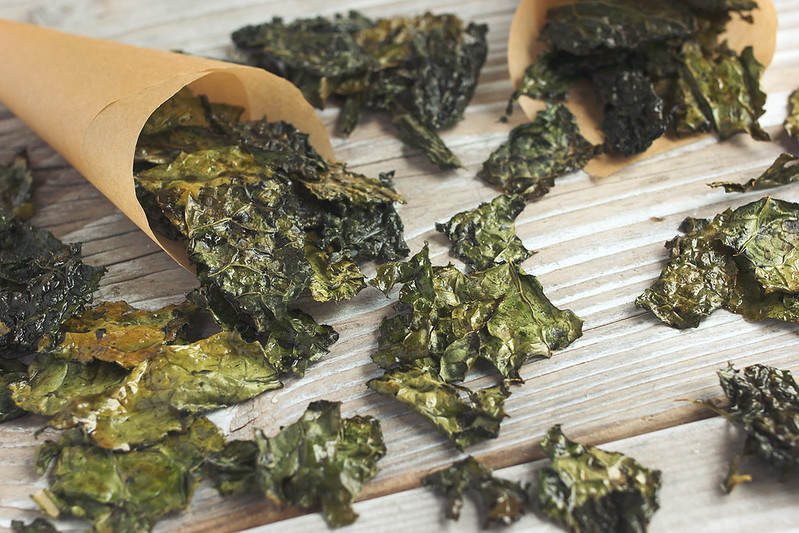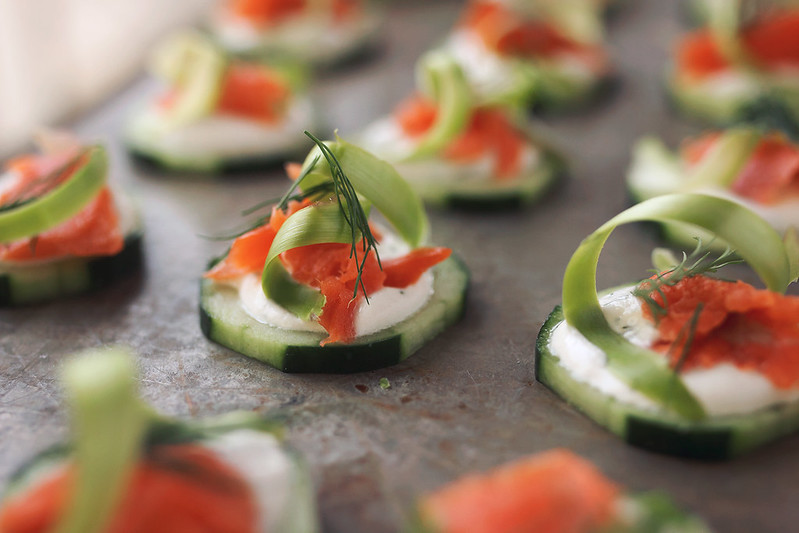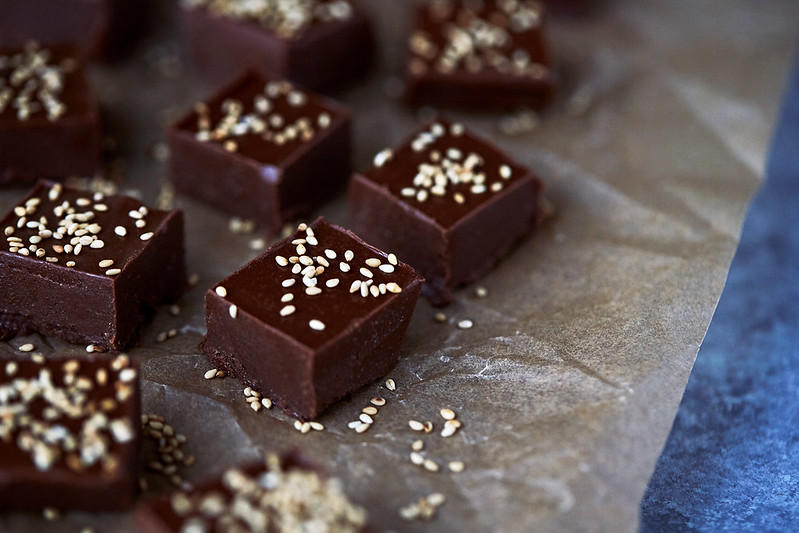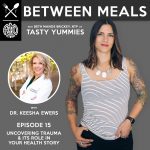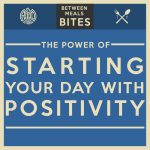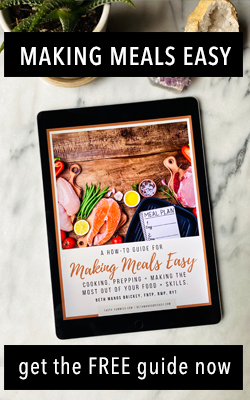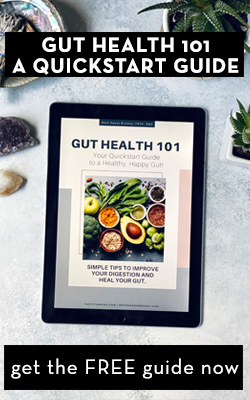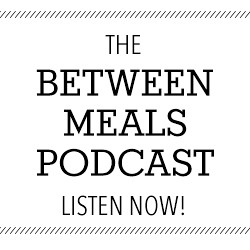Is snacking healthy? Should you snack? If you find you are chronically grazing on many small meals throughout your day because of excessive hunger, you can likely blame imbalanced blood sugar and not eating for satiety. In this post we talk about snacking along with some healthy snack ideas for when a gap snack might be necessary.
Is Snacking Healthy? Should You Snack?
Let’s talk about snacks baby. Let’s talk about you and me. Let’s talk about all the good things and the bad things, that may be. Let’s talk about snacks! hahah. Sorry. I digress. Seriously though. Determining what to eat is challenging enough of a question, but add to that, the question of when and how often to eat – this adds a whole new additional layer of unanswered inquiries and confusion for many.
Smaller More Frequent Meals Helps Boost Metabolism, Right?
While convention nutritional advice long touted 5-6 small meals throughout the day as a means to increase your metabolism and encourage fat loss, this antiquated approach doesn’t look at the full scope of our day and what is actually happening in the body with every snack or small meal. For so long, many “experts” believed the idea that many small meals is theoretically “stoking the metabolic fire,” while less frequent meals “slow your metabolism.” The thought process was that eating many small meals keeps your metabolism plugging away at a high rate for the entire day, helping you burn more fat. Conversely, it was thought that going too long between meals slows down your metabolism, so that when you do eat, your body is sluggish to respond to the caloric load and you end up storing it as fat.
Sounds pretty smart, right? But, guess what, it’s just not true. There isn’t any science to support it or research that proves smaller, more frequent meals has any metabolic advantage.
What we do know, as research has shown, the more you eat the more insulin your body releases, and this constant output of insulin interrupts the intended flow of blood sugar.
With every meal there is a rise in our blood sugar (which is just the amount of free glucose in our bloodstream) then a release of insulin follows. With lots of small meals through the day that means a blood sugar rollercoaster of highs and lows that can cause additional cravings, fat storage, mood changes, irritability and more.
Besides that, with every meal or snack that we eat, our body has to begin the process of digestion, this takes energy and time, as your body is breaking down the food into usable molecules that are absorbed by the body and utilized appropriately. This process takes energy away from other repairs and tasks your body should be doing. Anything we eat that the body cannot absorb or use in some capacity is then stored as fat. Whenever we snack this stops the process of our body using stored body fat in between meals.
The goal is to instead build a day with more steady blood sugar by getting enough fat and protein at every meal to reach satiety and not solely relying on refined starchy carbs and sugar for quick hits.
Understanding Blood Sugar
Our body’s innate intelligence constantly monitors the amount of glucose in our bloodstream to maintain balance within the body. Too much or too little triggers the release of the hormones to return levels to normal. With an increase in glucose, the pancreas is signaled to release insulin. Insulin signals cells all over our bodies to take these nutrients out of our bloodstream and store them. This keeps our blood sugar from getting too high.
The ultimate goal – a constant slow and steady stream of glucose from unrefined, whole food sources, entering into the blood stream in a controlled manner. Not the large dumps of sugar that we see far too often in our food culture. From sugary drinks, refined, starchy carbohydrates like chips and popcorn, sweets, etc. We are NOT designed to run on just carbohydrates. The body is designed to use a balance of unrefined carbohydrates (think fiber-rich vegetables, low-glycemic fruits and a small amount of whole, soaked/sprouted grains, but only if you can tolerate them), along with good fats and quality proteins as the primary sources of fuel.
Build a Fire.
A great way to understand how to build your meals and plan your day of eating, is if you look at your day as a large fire. The fire being representative of the energy needed to fuel us for our various daily activities and just to remain awake, alert and highly functioning. Carbohydrates act like kindling in our fire; these are the dried sticks and leaves, crumbled up pieces of paper – you throw this into the fire and they are quick burning and work for a very short time to get us bursts of energy, as needed. Like a fire with the kindling (carbs) you get that jolt of fire (aka the energy) POOF and then just as quickly, it’s gone. That’s usually followed by the big crash when your fire goes out and then you inevitably need to add even more kindling if you can ever hope to stoke a fire that will last throughout the day.
However, rather than lots of small handfuls of kindling throughout the day (aka snacks), a log would be much more appropriate. Quality fats and proteins, these are the like a big, hefty, solid log on your fire, this is the energy that will burn slowly, more steady and for longer, without the huge and sudden drop offs! Healthy fats and proteins provide a more sustained source of longer lasting, balanced energy, along with providing the body the necessary precursors to create healthy hormones.
This is all just a clever and simplified way to explain that when we are exclusively burning carbs/glucose we create a roller coaster with our blood sugar, with the highest of highs and the lowest of lows aka crashes or bonks! It’s not sustainable, it means we are constantly wasting energy on finding our next meal, always having to be prepared by carrying snacks and if fat loss happens to be something you seek, this approach can make that far more challenging.
The Problem with Snacking
No matter what we eat, our blood sugar will increase, the amount that it increases depends drastically obviously on the foods we eat. As well, other factors can affect blood sugar like genetics, stress, etc. As our blood glucose increases our pancreas gets the call to release insulin to transport the glucose (blood sugar) to the cells to be used for energy.
As we continuously release insulin in response to the many small meals/snack in turn this can cause our body to hang on to fat for longer. If blood glucose levels are not rising every hour on the hour with the many snacks, the body instead burns fat as it’s source of fuel.
Again, as mentioned above, if your body is continuously being asked to digest food, we are also expending energy to process the food and break it down, we aren’t giving our body the rests nor ever giving it the opportunity to metabolize stored body fat in between meals.
When and How Often Should We Eat?
Eating more frequently is not the answer for fat loss nor maintaining steady energy throughout the day, for most people the answer is to actually eat less frequently. Eliminating or reducing snacks is a simple way to reduce the frequency of eating. This gives our systems a much needed rest in between meals, a break from the constant blood sugar roller coaster.
I generally recommend 3 properly constructed, appropriately sized meals a day (2 if you practice intermittent fasting and have a good handle on your blood sugar), meals should have a focus on quality protein and fat, complex carbohydrates and fiber from vegetables like leafy greens, broccoli, etc. and as always, it helps to prioritize a variety of colorful, unique, foods with your meals so that you are getting lots of essential micronutrients, vitamins, minerals, etc. The goal is to build meals that will keep you satiated and avoid steep spikes in your blood sugar.
Fat has the least impact on blood sugar on it’s own and combined with a full meal it slows the absorption in the blood stream and helps you avoid big spikes in your blood sugar.
Protein will also help keep the blood sugar level and steady, like fat on it’s own it won’t cause a rise in blood sugar, but it’s important to note that an excess of protein can be converted to glucose, in a process called gluconeogensis.
Fiber-rich vegetables. Fiber also slows the absorption of glucose which means the fiber found in a whole vegetable or fruit that contains some amount of carbohydrates, it serves an important job in helping to slow down the absorption and the hit on the blood sugar.
To reiterate, in most cases if we build a better day with quality well-rounded meals, if we are eating for satiety and keeping blood sugar balanced throughout our day – snacking won’t be necessary.
When Snacking IS a Good Idea
If you hit a wall where you find yourself hungry between meals and you don’t think you can make it, I think an afternoon “gap” snack with enough fat and protein to hold you over to your next meal if fine, when needed. But, it’s about making smarter choices when you do have to snack. (I share some healthy smarter snack ideas below.)
I also think it’s important to note – is your current snacking approach is out of necessity and hunger or simply out of boredom or habit? Check in and ask yourself – “am I really hungry or am I bored?” and when you can, acknowledge the purpose for your snacking and try to only snack when you are experiencing true hunger. True hunger is growling tummy, low energy, shaky hands, irritation or other mood changes or brain fog.
When snacks or smaller more frequent meals IS the answer for someone: I would really only suggest this approach of smaller, more frequent meals regularly, for my clients looking to gain weight or manage chronically low blood sugar. To that I will also add that people who are chronically stressed-out with cortisol disregulation may also experience blood sugar swings. So, for some, long periods without eating or fasting can actually elevate cortisol levels. One of cortisol’s effects is that it raises blood sugar. So smaller more frequent meals, while they are working to normalize their stress levels and cortisol output, may be a better option.
Finally, of course, very active children, pregnant or nursing moms or high output athletes also tend to have a much different energy needs than the rest of us, so snacking may be a good choice, at certain times for these folks.
What to Snack on:
When your snacks are protein and/or fat forward and void of high-glycemic, refined carbohydrates, you can be certain you will be avoiding the blood sugar spikes and crashes.
Here’s a list of just some of my recommended smarter snacks – both savory and sweet.
- hardboiled eggs
- 1/2 avocado with sea salt and black pepper, red pepper flakes or lime juice, etc
- low-sugar grass-fed beef jerky, meat sticks or salmon jerky
- smoked salmon dip with cucumber slices or celery
- fresh veggies and green tahini, dairy-free ranch, green goddess dressing, guacamole, roasted beet cauliflower hummus or other unrefined dips/hummus.
- smoked salmon cucumber bites
- small handful of nuts and seeds (sprouted for easier digestions and extra nutrients) – I especially love a few macadamia nuts
- coconut chips
- bone broth latte
- a spoonful of unsweetened nut butter
- a spoonful of unsweetened coconut butter
- savory grain-free granola
- sardines packed in olive oil
- high-quality pork rinds
- canned salmon on lettuce cups, celery or grain-free crackers
- seaweed snacks
- kale chips
- olives
Sweet Snacks
- chia seed pudding*
- a square or two of dark chocolate (I suggest 85% or higher)
- boosted chocolate tahini fudge*
- 1/2 serving of a Smarter Smoothie
- White Chocolate Peanut Butter Fat Bombs*
- Dark Chocolate Coconut Butter Keto Cup (Matcha or Raspberry)*
- Low sugar berries with Whipped Coconut Cream
- A Small Handful of Grain-free Chocolate Coffee Keto Granola
*I suggest you make these unsweetened or sweeten with just a small amount of stevia or monk fruit or other natural, non-glycemic sweetener. You can also use a very, very small amount of maple syrup or honey.
Is Snacking Healthy?
3 Bowls Snack Photo by Rachael Gorjestani on Unsplash
Fire Photo by Chris Rhoads on Unsplash
SaveSave
